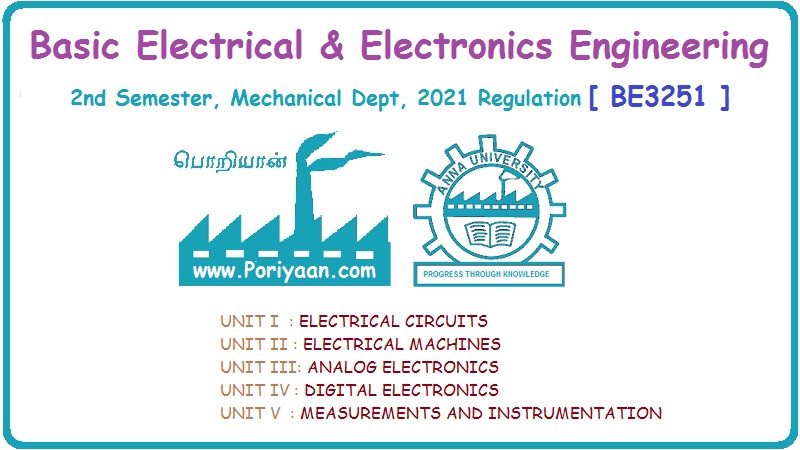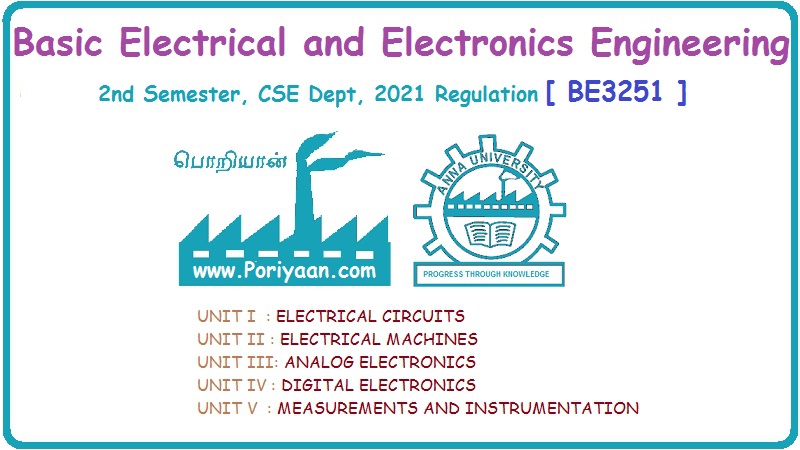Basic Electrical and Electronics Engineering: Unit III: Analog Electronics
Basic Construction of Junction FET (JFET)
The JFET consists of a P-type (or) N-type silicon bar containing two PN junction at the sides.
BASIC
CONSTRUCTION OF JUNCTION FET (JFET)
The
JFET consists of a P-type (or) N-type silicon bar containing two PN junction at
the sides as shown in fig.3.59.
If
the silicon bar is N-type then it is called N-channel JFET and if the bar is
P-type then it is called P-channel JFET.
For
the fabrication of N-channel, a narrow bar of N type semiconductor material is
taken on the opposite sides of its middle part, two heavily doped p-type
regions are formed by diffusion.
This
forms PN junction called as Gate (G). The gap between the gate is called a
channel. The two P-regions are internally connected and single lead is taken
out which is called gate junction. The two ends of N-type semiconductor bar one
end is called Source (S) and the other as Drain (D).
When
a potential difference between source and drain, a current flow from one end
the other end in N-type material which forms a sort of channel and current flow
due to majority carriers (electrons). Similarly a P-channel JFET fabricated by
P-type semiconductor bar and diffusing N type junctions, in this case current
flow due to majority carriers (holes) only.
The
JFET three terminal functions:
Source:
The source S is a terminal through which the majority carriers enter the bar.
Drain: The drain D is
a terminal through which the majority carriers leave the bar.
Basic Electrical and Electronics Engineering: Unit III: Analog Electronics : Tag: : - Basic Construction of Junction FET (JFET)
Related Topics
Related Subjects
Basic Electrical and Electronics Engineering
BE3251 2nd semester Mechanical Dept | 2021 Regulation | 2nd Semester Mechanical Dept 2021 Regulation
Basic Electrical and Electronics Engineering
BE3251 2nd Semester CSE Dept 2021 | Regulation | 2nd Semester CSE Dept 2021 Regulation

